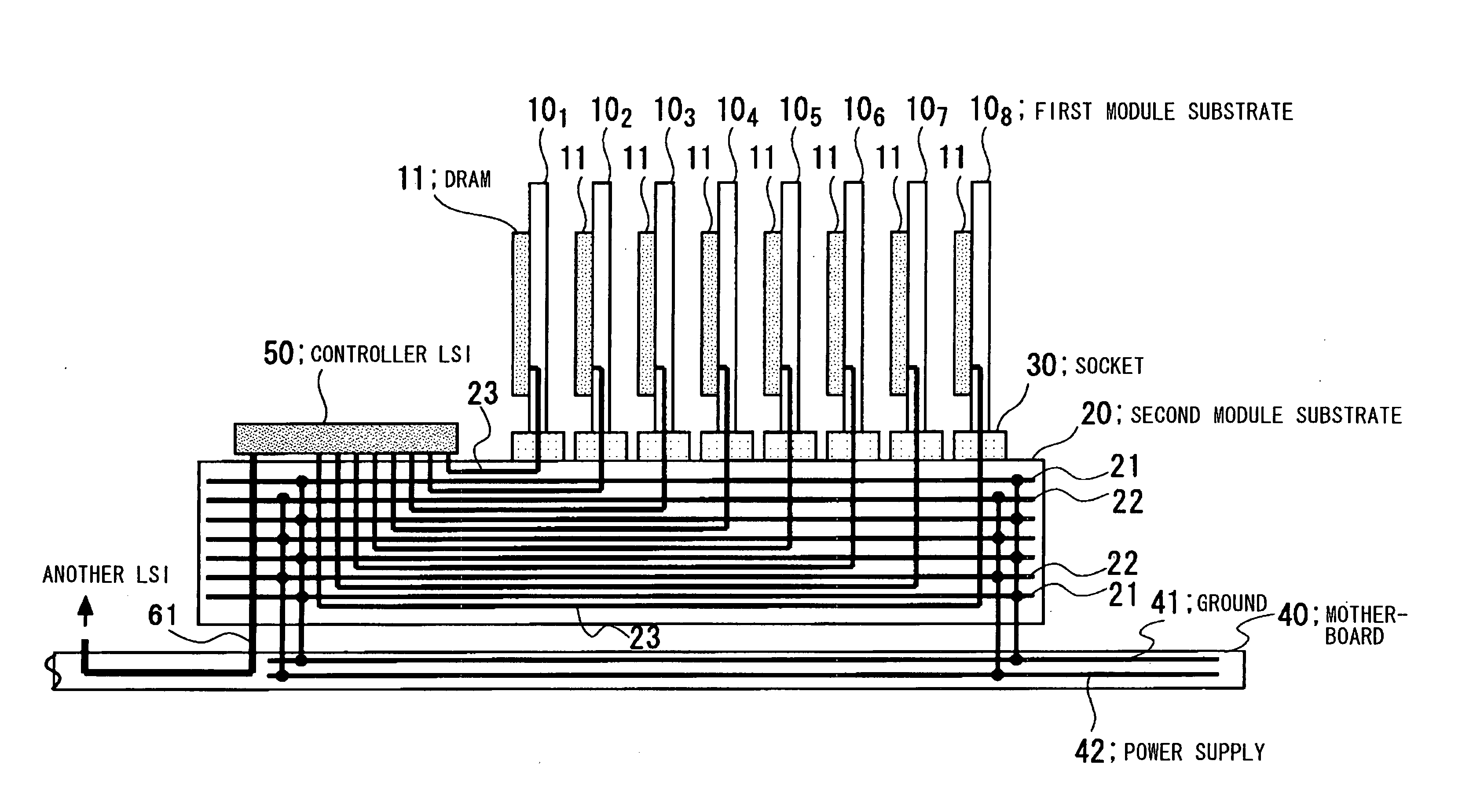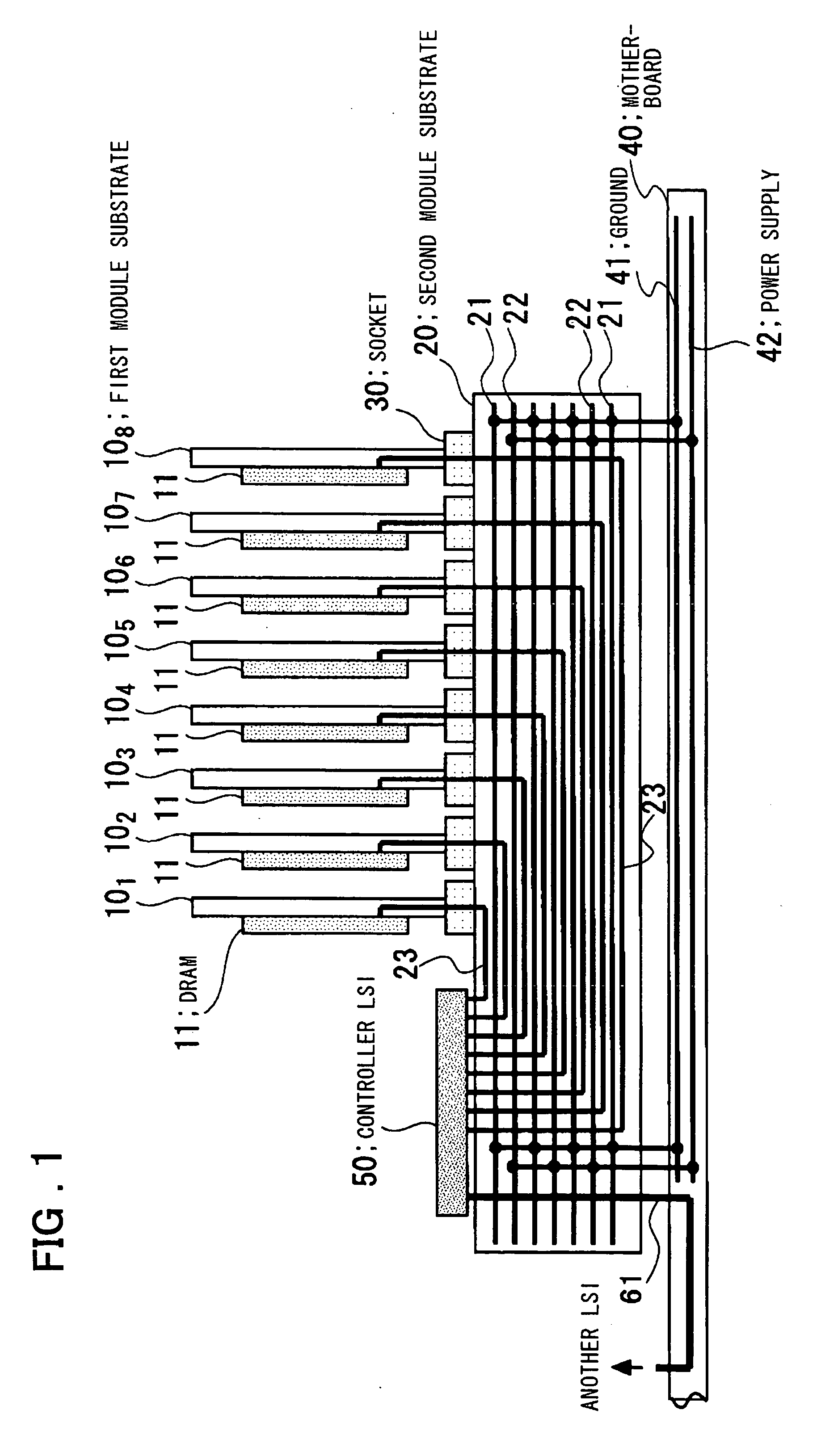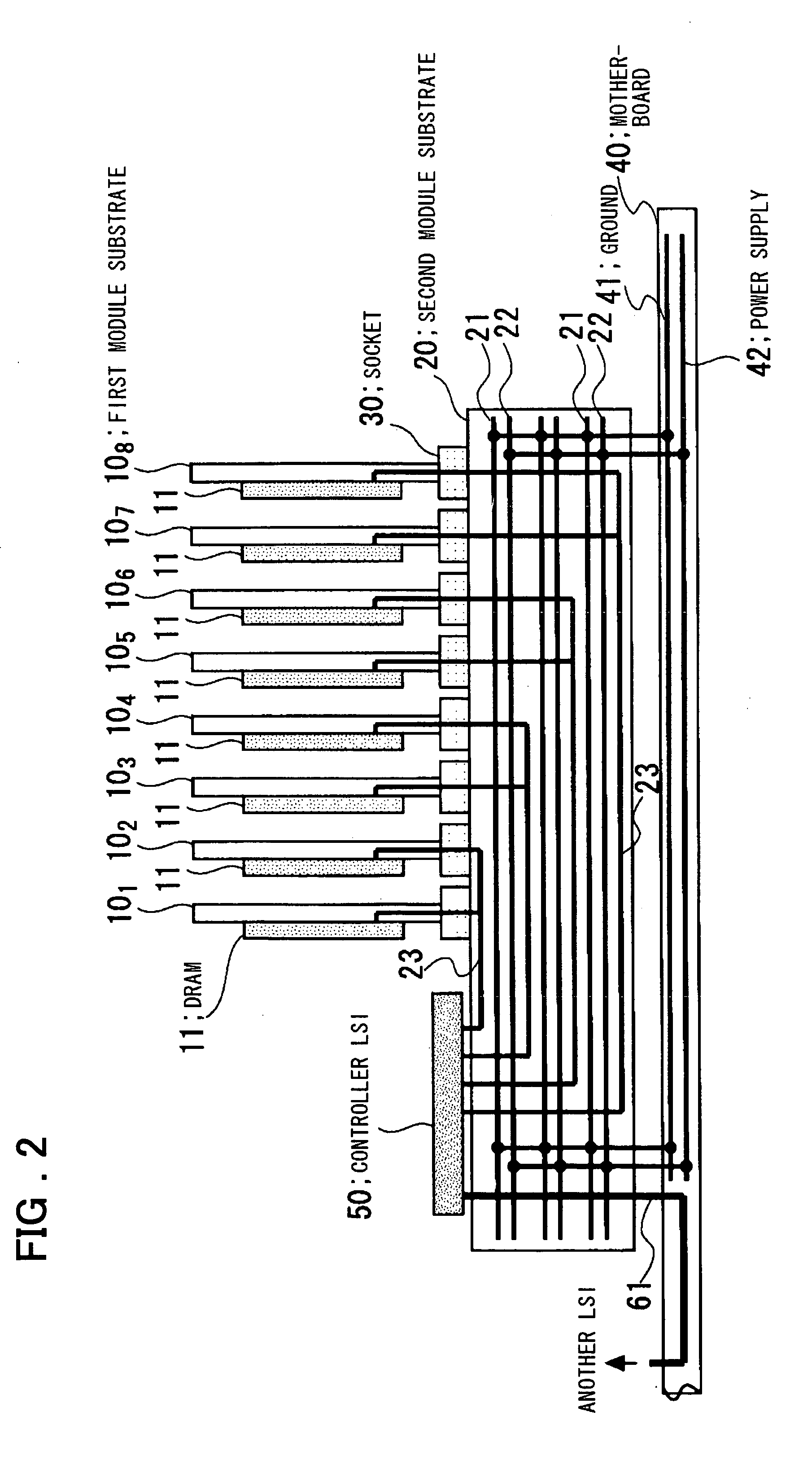Hierarchical module
a hierarchy module and module technology, applied in the field of memory modules, can solve the problems of difficult capacity increase and cost increase, and achieve the effects of high speed transfer rate, convenient optimal wiring, and large capacity
- Summary
- Abstract
- Description
- Claims
- Application Information
AI Technical Summary
Benefits of technology
Problems solved by technology
Method used
Image
Examples
embodiment
[0046]FIG. 1 is a drawing showing the structure of a first embodiment of the present invention. In reference to FIG. 1, in the first embodiment of the present invention, the first module substrates 10 with the DRAMs 11 has the same structure (DIMM) as the first module substrates 10 described with reference to FIGS. 5 and 6, the first module substrates 10 are inserted into sockets 30 and mounted on the second module substrate 20. The sockets 30 are soldered and fixedly connected to the second module substrate 20. The second module substrate 20 is connected on the motherboard 40 by soldering, for example.
[0047] In the present embodiment, the controller LSI 50 such as a DRAM controller is mounted on the second module substrate 20 as well, and the sockets 30, into which each of the eight first module substrates 101 to 108 are inserted, and the corresponding pins (electrodes) of the controller LSI 50 are connected in parallel to each other by the wiring lines (signal lines) 23 provided ...
PUM
 Login to View More
Login to View More Abstract
Description
Claims
Application Information
 Login to View More
Login to View More - R&D
- Intellectual Property
- Life Sciences
- Materials
- Tech Scout
- Unparalleled Data Quality
- Higher Quality Content
- 60% Fewer Hallucinations
Browse by: Latest US Patents, China's latest patents, Technical Efficacy Thesaurus, Application Domain, Technology Topic, Popular Technical Reports.
© 2025 PatSnap. All rights reserved.Legal|Privacy policy|Modern Slavery Act Transparency Statement|Sitemap|About US| Contact US: help@patsnap.com



